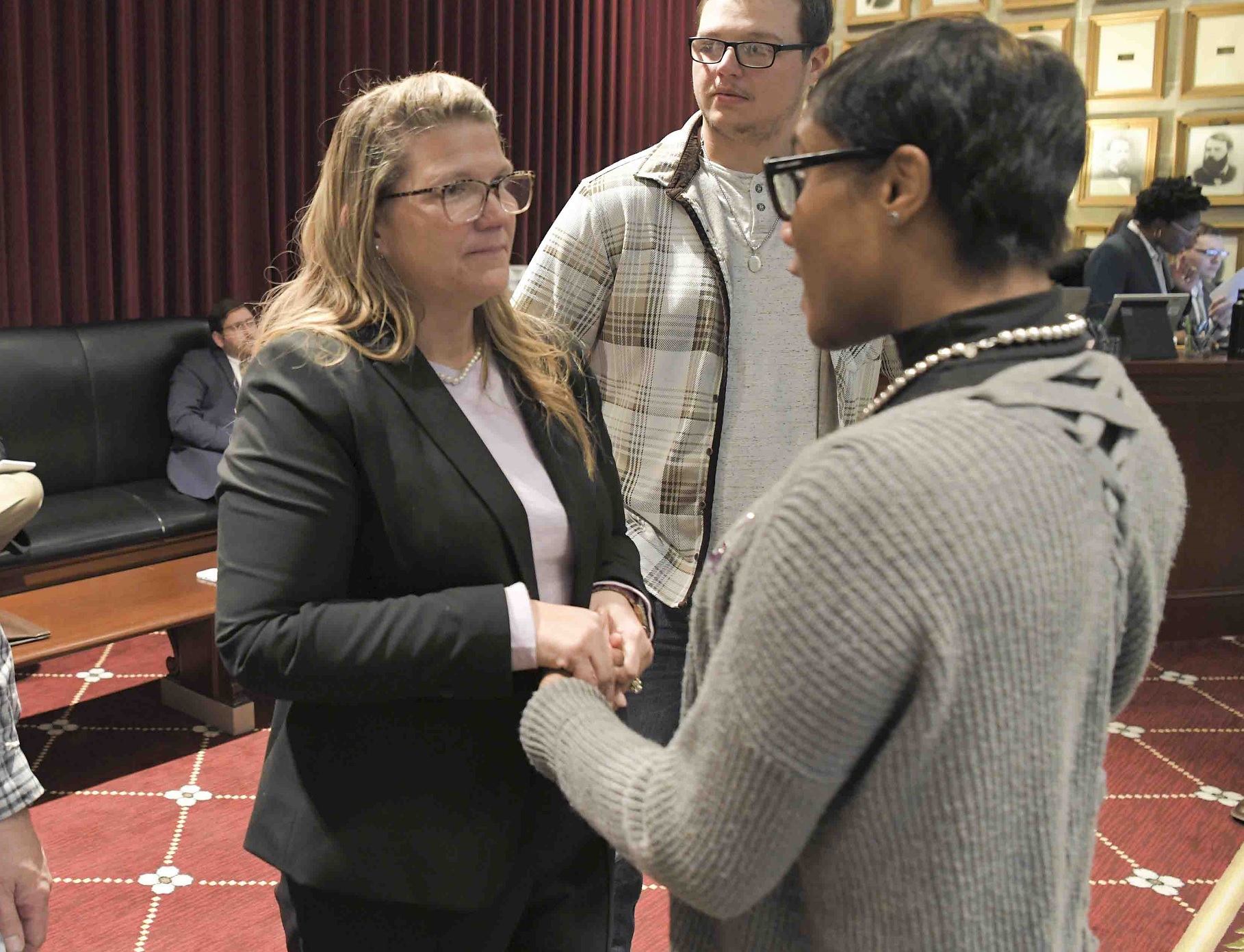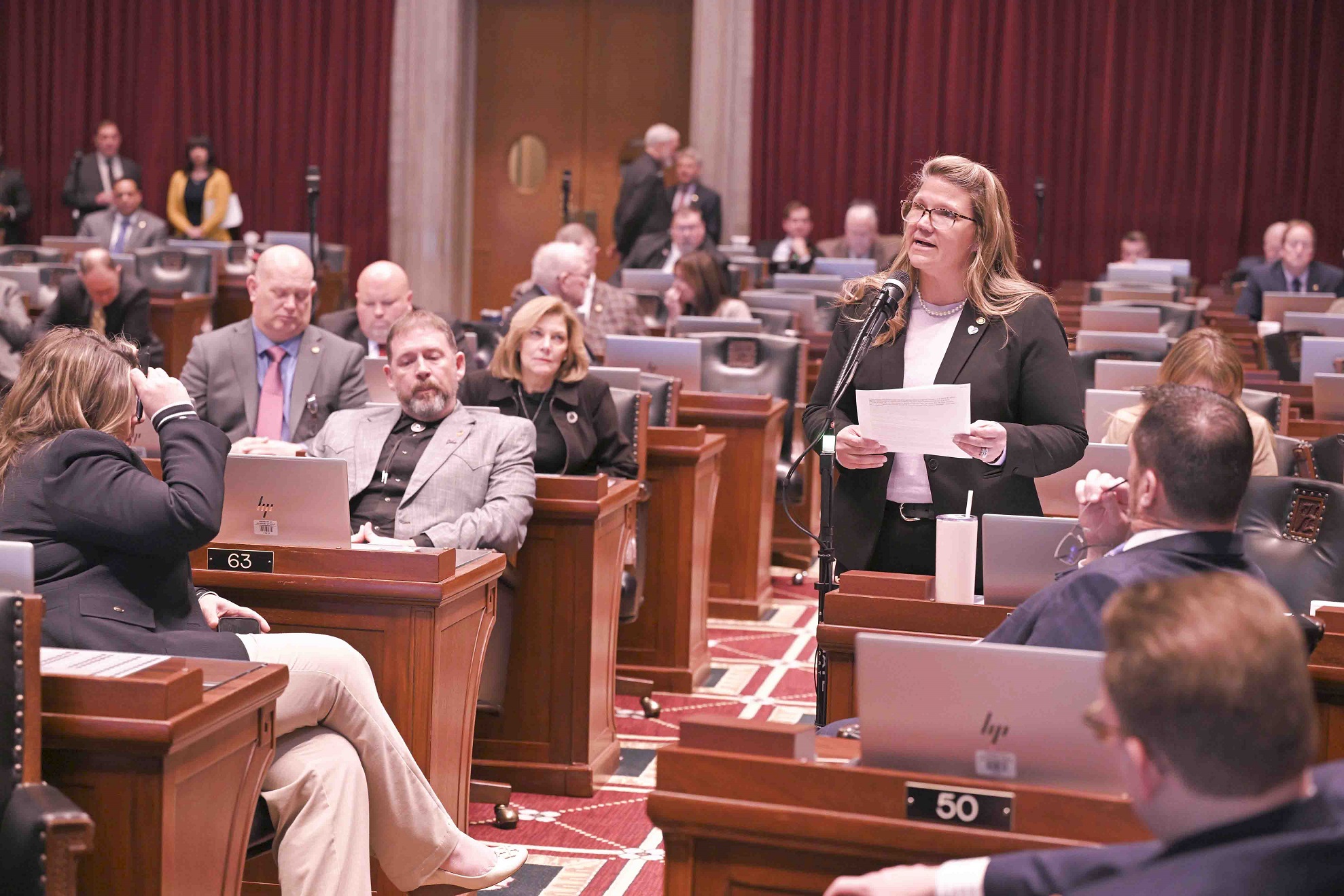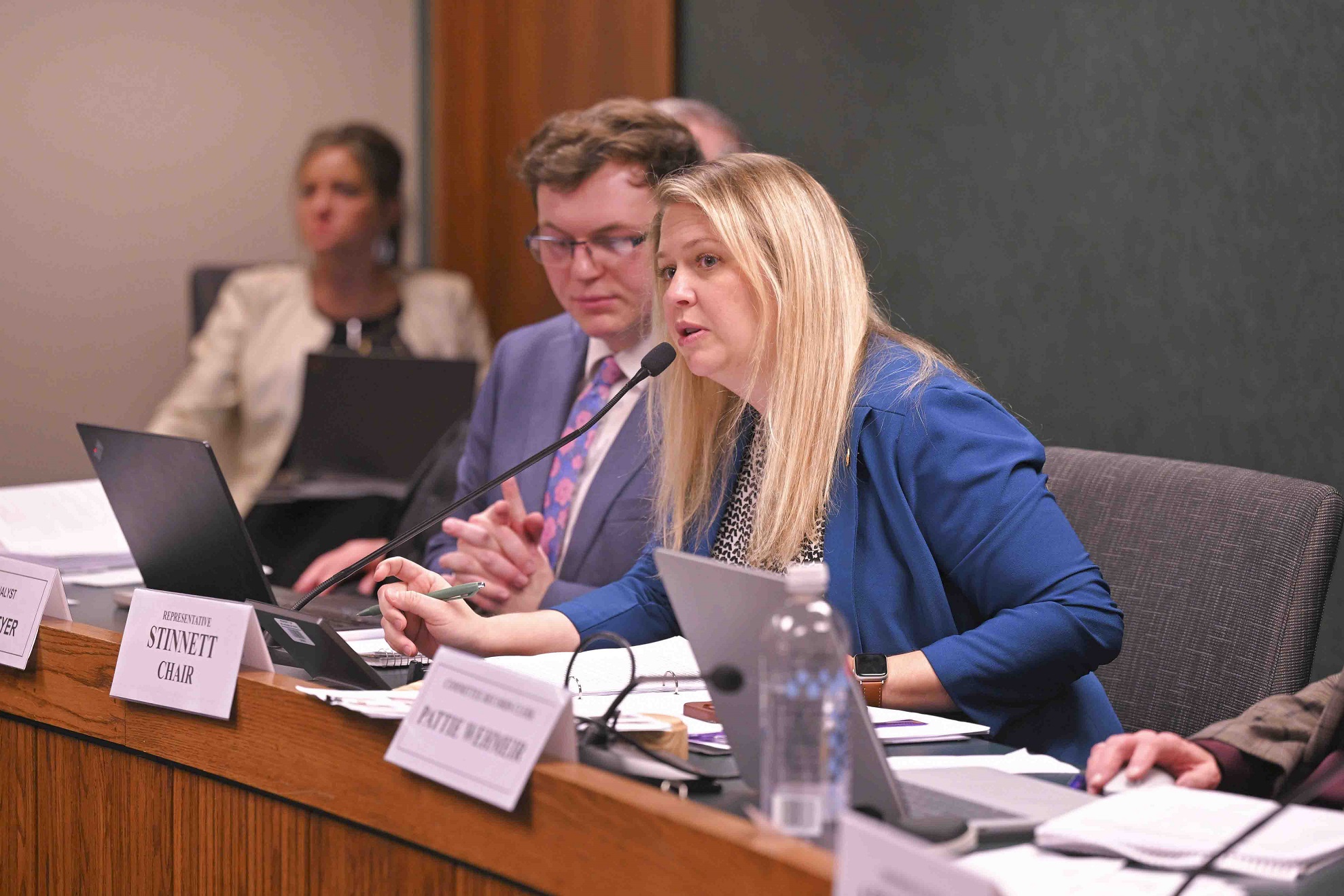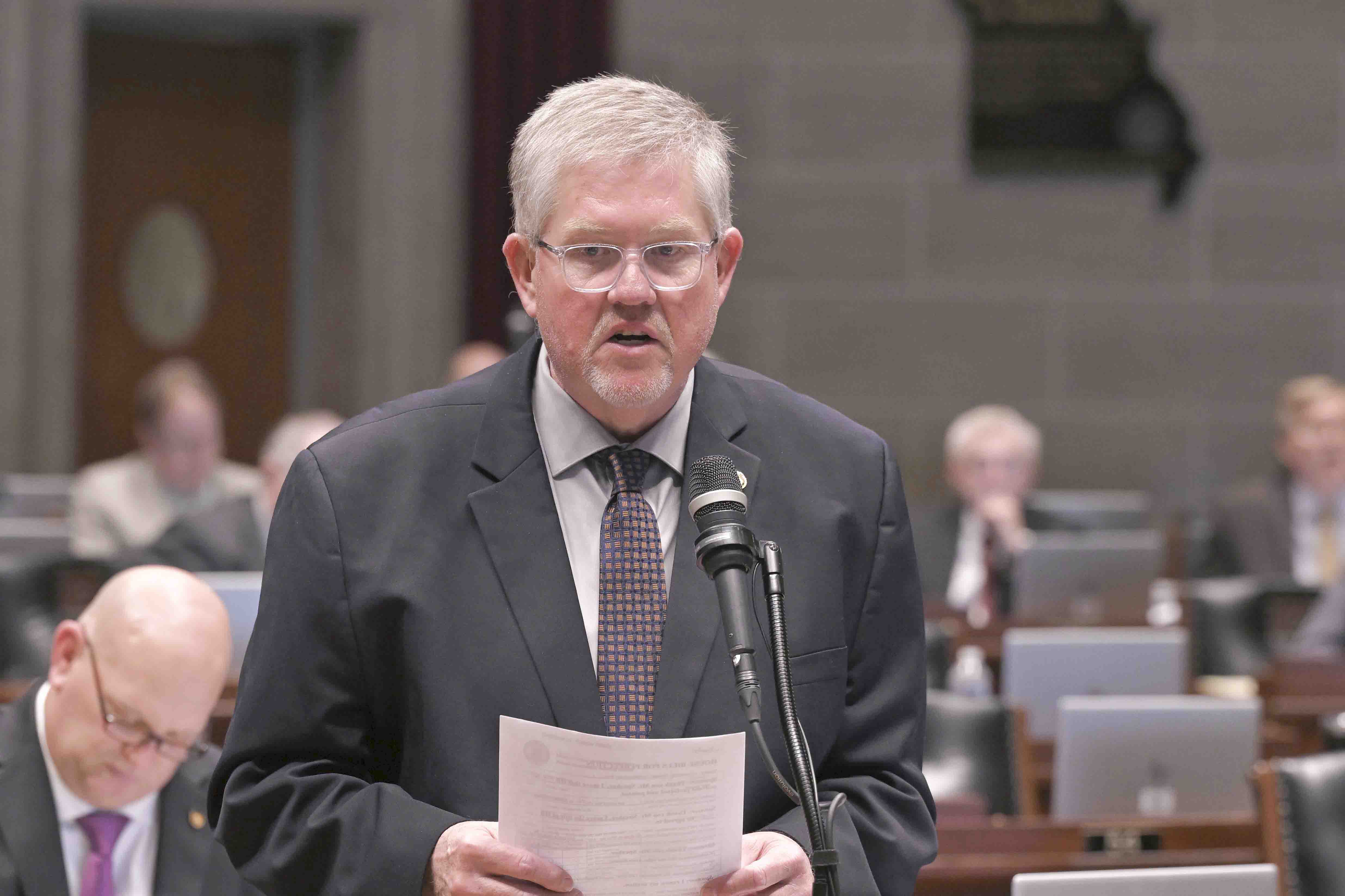As the General Assembly begins its spring break, Missouri House Republicans joined Governor Mike Kehoe (R) and Republicans from the Missouri Senate in a joint media conference, discussing what has been accomplished in the first half of the 2025 legislative session.
Author: Mike Lear
House Votes to Rein In Vehicle Assessments
The House voted unanimously this week to ensure that Missourians would not experience increases in the taxes they pay for vehicles ever again.
House Bill 816 is the latest attempt by representatives to block something that happened post-Covid from being repeated. During and after the pandemic supply lines for parts and vehicles were hindered, and the demand for, and value of, used vehicles was inflated. That meant Missourians’ property tax bills also increased.
“If you will remember, in 2021 and ’22, people saw the assessment values go up on their cars and when those assessments went up their taxes went up, and that was kind of caused by the market value of used cars,” recalls bill sponsor Rodger Reedy (R-Windsor).
He told his colleagues in the House Chamber, “Many of you in this room, if you go back and look at your tax bills from ’21, ’22, ’23, you are paying more money on the same car that was a year older, that had maybe 20 or 30 thousand more miles on it, and it was not right.”
Reedy said part of the problem is that state law requires assessors to use the October issue of the National Automobile Dealers Associations (NADA) Used Car Guide to determine the value of vehicles. Reedy and others have proposed for several years now that the law allow the State Tax Commission to select a publication from those available, for assessors to use that year.
“I don’t believe that we should be putting in statute that you have to do business with a certain company, and this corrects that … they may be one that bids on it and they may be the best bidder, but it gives the other companies the opportunity to do that as well,” said Reedy. “What they would do is do a bidding process with different companies to provide that information and then, basically, they would probably use the lowest and best bid, which in turn would save taxpayer dollars.”
Reedy’s proposal would also state that no vehicle can be assessed at a value greater than it had, the year prior.
Though the proposal has not reached the governor’s desk in past years, that has not been for lack of bipartisan support.
Lee’s Summit Representative Kemp Strickler (D) said the bill would be, “a great way to make sure that the issues that we saw during Covid don’t reoccur, where again, those used car values, those should be going down and the amount that people pay on those should be going down. We know that there was an artificial bubble back then. I think this does a really good job of addressing that and making sure the taxpayers aren’t on the hook if that happens ever again.”
Representative Del Taylor (D-St. Louis) called the tax increases during Covid an “anomaly” that should be prevented, “and basically he’s saying that no, the assessment cannot exceed what it was last year. Excellent idea.”
HB 816 receive no “no” votes in three House committees and the full Chamber, the latter of which voted 157-0 to send it to the Senate.
VIDEO: House Democrats media conference 03-06-2025
Missouri House Democrats discussed issues and legislation from this week and answered reporters’ questions.
VIDEO: Missouri House Republican media conference 03-06-2025
Missouri House Republicans talked about legislation that passed this week and looked ahead to next week in the Chamber.
VIDEO: Session Update from the Missouri Legislative Black Caucus
The Missouri Legislative Black Caucus addressed reporters and fielded questions about the legislative session so far.
VIDEO: House Votes to Tell Judges Not to Delay Finalizing Divorces due to Pregnancy
The state House has voted unanimously to tell judges they cannot delay finalization of a divorce based on one party in the marriage being pregnant. The vote came after one bill sponsor shared her own experience with domestic violence, and how she found herself pregnant but unable to divorce her abuser.

Missouri Law allows filing for divorce during a pregnancy, but judges typically wait to finalize a divorce until after that party gives birth.
The passage came after one of the proposal’s sponsors shared her own story of having been in an abusive marriage, and learning that she could not divorce her husband while pregnant.
“I stand before you hoping to change that for women like me, who were, and may be, trapped in dangerous situations. This bill is more than just a legal change. It’s a lifeline for women who are forced to stay in marriages because they are pregnant,” Representative Cecelie Williams (R-Dittmer) told her fellow House members. “No woman should be forced to remain in an abusive marriage, especially while pregnant.”
Watch Williams speak about her own experience on the House Floor, in the video below.
Williams and Ferguson Democrat Raychel Proudie sponsored the legislation this year, and Proudie echoed Williams’ sentiment.
The legislation was first offered during the 2023 legislative session by Representative Ashley Aune (D-Kansas City), who praised Williams for her bravery in sharing her personal story and getting this legislation so far, so early in session.

Aune said the proposal had been brought to her by domestic violence advocates, and she viewed it with such issues in mind. Once she filed it, however, she was truck by how many men contacted her to thank her.
After House voted to send the bill to the Senate, Williams reflected on how hard it has been to speak publicly about what she went through, an experience that included years of physical and verbal abuse, often in front of her young children, before her abuser took his own life just days before their divorce would have become final.
The vote to send House Bills 243 (Williams) and 280 (Proudie) to the Senate was 155-0. It now goes to the Senate, in which two versions of the same language have been filed.
House Republican Media Conference 02-27-2025
Missouri House Republicans spoke to reporters and fielded questions after the House wrapped up work for the week.
House Democrat Media Conference 02-27-2025
Missouri House Democrats spoke to reporters and fielded questions after the House wrapped up work for the week.
Restoration of Voting Rights to those on Probation and Parole is Proposed
An effort to allow people on probation and parole to vote has been renewed for a third legislative session.

Springfield Republican Melanie Stinnett has filed the language of House Bill 617 since she was first elected. It would lift the prohibition on voting rights for those on probation and parole for a felony conviction, unless their conviction was for a crime related to voting or elections.
“It is, in my opinion, a small bite that makes a big difference,” Stinnett said. “It’s really my belief that we should be hoping that these individuals can reenter our communities and be successful members of our communities, and one piece of that is civic engagement.”
Stinnett’s bill has received broad support in the past two years, despite falling short of becoming law. She agreed to carry it largely because of an encounter she had while knocking doors during her first run for the House.
A short time later, the man caught up with her.
After meeting several more voters who were in a similar situation, and some thought and reflection, Stinnett said she was quick to agree to carry the proposal.
“I said you don’t even have to sell me on it. I saw the impact in my community and I think it’s a worthwhile bill to carry and look into, and so we’ve really pushed it pretty significantly over the past two years,” Stinnett said. “We’re not just talking about voting for president, right? We’re talking about voting for school board, we’re voting for local taxes, we’re voting for city council, and these things that we talk about are impacting our everyday lives. These individuals who have done their time, been incarcerated, and been released don’t have the ability to contribute to their community in that way.”
To exempt those guilty of violating election law makes sense for obvious reasons, Stinnett said, but she has seen no reason to have additional exclusions.
House Bill 617 has not been assigned to a committee. Stinnett is hopeful it will soon begin moving through the legislative process.
VIDEO: House Equality Caucus media conference for 02-20-2025
The legislators of the Equality Caucus spoke to reporters and answered questions.

